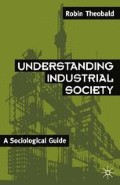Abstract
Whether we are aware of it or not the international economy permeates our everyday lives. A good deal of the food and drink we consume, although no doubt processed here, comes from outside the United Kingdom, whether rice from the United States or Surinam, oranges from Spain or Israel, cocoa and pineapples from the Ivory Coast, coffee from Kenya or cauliflowers and potatoes from Brittany. The shirts and dresses we wear are increasingly likely to have been made in India or Hong Kong, our shoes in Italy or Brazil, our hi-fi, TV or video in Japan or Singapore. Whether the car we drive comes from Japan, France or Germany, the iron ore from which its steel body is made probably originates in Australia, Canada or Brazil, the copper in the electrics from Chile or Zambia, chrome on the bumper bars from South Africa, Thailand or Turkey. The price of the petrol we put in its tank is heavily determined by decisions made in Riyadh, Jakarta, Algiers or Tehran. If we have a mortgage, the interest rate we pay is strongly influenced by the budget deficit the United States government chooses to run, as will be the interest on the overdraft our small business has with the bank. If we export, the price of the commodity we manufacture will be much affected by the exchange value of the pound against other currencies, this value being the outcome of a whole series of complex international movements and pressures.
Preview
Unable to display preview. Download preview PDF.
Bibliography
Frank, A. G.(1978) World Accumulation 1492–1789 (London: Macmillan).
Hobsbawm, E. J.(1986) Industry and Empire (Harmondsworth: Penguin).
Hopkins, A. G.(1980) An Economic History of West Africa (London: Longman).
Radice, H.(1979) International Firms and Modern Imperialism (Harmondsworth: Penguin).
Rostow, W. W.(1962) The Stages of Economic Growth: A Non-Communist Manifesto (Cambridge: Cambridge University Press).
The Times Atlas of World History (1984) (London: Times Books).
Todaro, M. P.(1989) Economic Development of the Third World (London: Longman).
Tugendhat, C.(1973) The Multinationals (Harmondsworth: Penguin).
World Development Report 1986 (Oxford University Press).
Author information
Authors and Affiliations
Copyright information
© 1994 Robin Theobald
About this chapter
Cite this chapter
Theobald, R. (1994). One World, One Economy. In: Understanding Industrial Society. Palgrave, London. https://doi.org/10.1007/978-1-349-23225-3_2
Download citation
DOI: https://doi.org/10.1007/978-1-349-23225-3_2
Publisher Name: Palgrave, London
Print ISBN: 978-0-333-48539-2
Online ISBN: 978-1-349-23225-3
eBook Packages: Palgrave Social & Cultural Studies CollectionSocial Sciences (R0)

